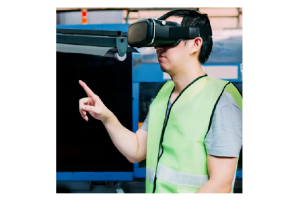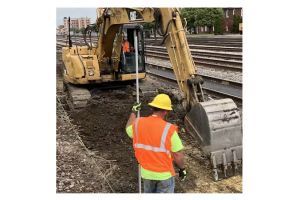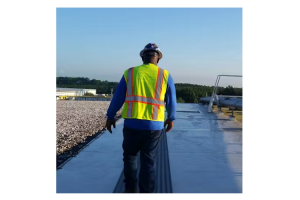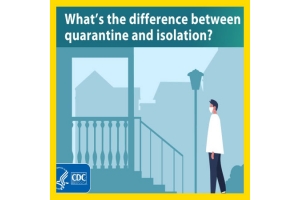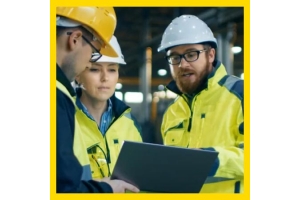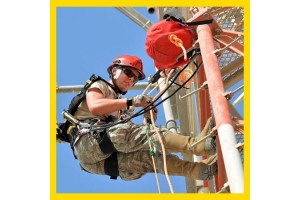Currency
October 03, 2021
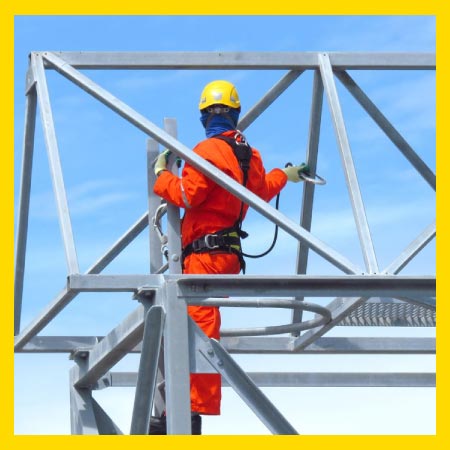
I want to take a moment to imagine this. You are walking along deep in thought, but not so deep in thought that you ignored your mother’s constant nagging to watch where you’re walking. You remain situationally aware, your eyes scanning the perimeter for hazards. You look both ways before crossing the street, and you repeatedly check for trip hazards. You are doing everything right when an alarming shriek pierces the morning’s peace. You hear someone yell “Hey, look out!” Instinctively you look up and almost instantly are struck by a dropped tool.
The next few moments are a blur of pain and blood and disorientation. You fall to the ground as worried passers-by ask a series of really stupid questions, “Are you alright?” (Do I look alright?) “Do you need help?” (No, I do this all the time. It’s a desperate cry for attention.) The next hour or so feels like a dream. Your head throbs. You wake up in a hospital bed where worried loved ones ask more stupid questions, like “How do you feel?” Did you ever have a hammer fall on your head? It feels a lot like that!) You mutter that you are a little sore, when the truth is your head feels like there are white hot knives being repeatedly driven into your brain. The medical staff tell you that they can’t give you anything for the pain until they have concluded their tests to ascertain the seriousness of your injury. You start to panic a little as the worry in the faces of people around you is mirrored in your face. You can tell by their expressions that you must look horrible and you wonder how bad this injury truly is. You ask yourself some scary and not so stupid questions about your wound. Is it crippling? Am I going to be alright? What exactly happened to me? Will this be a quick bandage and some medication, or will I suffer life-limiting impairments?
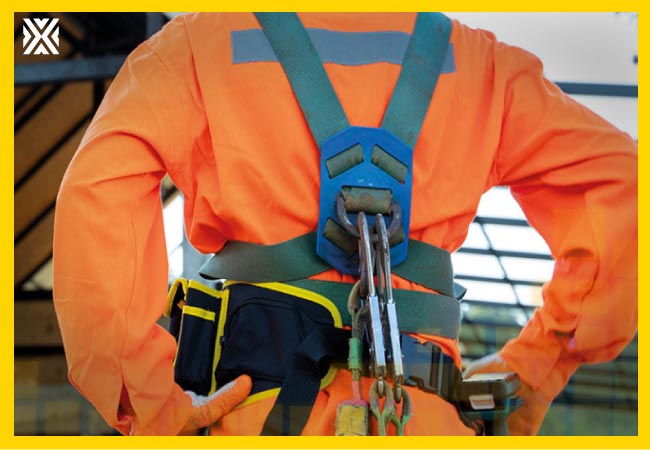
My father-in-law, Red, was injured on a construction job when his foreman (who, according to labour laws, was not supposed to be performing the task he was undertaking) dropped an angle iron three stories down onto the Red’s neck. Red never knew it was coming. He was engrossed in his work and never gave “death from above” a thought. Work rules dictated that no one was to be working above him and he had no reason to believe there would be. He was doing his job in the prescribed fashion and he was wearing a hard hat and all the required PPE.
In a flash his life changed forever. The angle iron connected with his neck with such ferocity that the first vertebrae exploded and the second was jammed into the third, rupturing it. The doctors were amazed that he didn’t die instantly. He said he was sore but otherwise felt okay (morphine will do that). The doctors told him that they had to remove the second vertebrae from the third and that he would have to be in a body cast for at least six months, after which time they gave him almost no chance of not being paralyzed from the neck down. Red rejected that option and sought out a doctor who was doing experimental surgery using cow vertebrae to treat such injuries. The doctor assured him that there would be no body cast and gave him a 90% chance of full mobility. He would never be able to lift 50lbs again.
While the surgery was successful eventually the damaged vertebrae began to deteriorate and at this point there was no fixing them. His life essentially ceased; the pain steadily worsened making the simplest movements excruciating. Death would not be far off and would offer a welcome release from his prison of pain. There is a steel mill near my house. Some idiot decided to leave a suspended load of steel in a heavily traveled area. Soon, the worker – unaware of the suspended load above – placed a picnic table in the rare open spaces. If you have never been in a steel mill I should tell you they are dirty, dark, and densely packed factories and an open space is a rare find. Nobody asked why the space was open; they just moved the picnic table to it. Management, ever vigilant, had the table taken away but it always managed to find its way back to that spot. One day, as two workers enjoyed their lunch, the suspended load (that had been suspended for over a month) gave way and tons of steel came thundering down on to the unsuspecting workers. They probably didn’t even have time to process what was happening in the last moments of their lives. One was 20 years old, and the other was 21.
“all injuries are equal, but some injuries are more equal than others”
Imagine how many lives were impacted by the deaths of these two young men. Yet nobody went to jail. Nobody was fired. Nobody said much of anything except that it was a shame and that they never should have been there. It should be noted that there were no barriers erected to secure the area below the suspended load, that leaving a load suspended was a serious safety infraction, or anything of any sort to warn the workers of the dangers. Months later, I offered my services as a safety consultant and was rebuffed. The head of safety told me, literally with a chuckle, that they were “doing just fine”. First of all, what kind of sub simian swine thinks that doing just fine is the goal of the safety department, and second, if your safety record has a body count you are pretty far from doing okay. I didn’t press the issue; I can’t help someone that stupid and depravedly indifferent to human life and suffering. If you are wondering how he sleeps at night, don’t. I’ve found that the stupid and sociopathic sleep well no matter what horrific thing happens on their watches.
While some will claim that all injuries are preventable (to which I reply, “Oh then why do people still get hurt on your watch?”) Given infinite time and resources I suppose that is true, but when does anyone have infinite time and resources? Even so, to paraphrase George Orwell, “All injuries are equal, but some injuries are more equal than others”. What I am alluding to, is that while some injuries could have been avoided in hindsight, injuries resulting in death or serious injury from a contributor factor of height don’t require a lot of foresight to prevent them.
We all know about gravity, right? (If you don’t, please do me a favour and stop reading this and pick up a colouring book instead.) If we drop something, it falls. And if what we dropped is large enough, or sharp enough and it comes into contact with a living creature, it is extremely probable that said creature will be injured. Depending on the object, where it strikes the victim, and the height the drop the injury could well be fatal. (Fun fact, dropping a small object from a incredibly tall building is not likely to cause injury – the belief that a coin dropped from the tallest building in the world could kill someone does not take friction into account; without friction, raindrops would be lethal. Falling bullets is also myth (they are actually bullets that are still ballistically propelled and since they are seldom shot straight up they can still kill someone by following their natural trajectory). Even so many people are shot by stray bullets so if you are celebrating don’t fire guns into the air.
When it comes to protecting ourselves from falling object hazards it really is a shared responsibility. Workers and bystanders play a role, supervisors and managers, play a role, and the workers who are working at height play a role.
The next few moments are a blur of pain and blood and disorientation. You fall to the ground as worried passers-by ask a series of really stupid questions, “Are you alright?” (Do I look alright?) “Do you need help?” (No, I do this all the time. It’s a desperate cry for attention.) The next hour or so feels like a dream. Your head throbs. You wake up in a hospital bed where worried loved ones ask more stupid questions, like “How do you feel?” Did you ever have a hammer fall on your head? It feels a lot like that!) You mutter that you are a little sore, when the truth is your head feels like there are white hot knives being repeatedly driven into your brain. The medical staff tell you that they can’t give you anything for the pain until they have concluded their tests to ascertain the seriousness of your injury. You start to panic a little as the worry in the faces of people around you is mirrored in your face. You can tell by their expressions that you must look horrible and you wonder how bad this injury truly is. You ask yourself some scary and not so stupid questions about your wound. Is it crippling? Am I going to be alright? What exactly happened to me? Will this be a quick bandage and some medication, or will I suffer life-limiting impairments?

My father-in-law, Red, was injured on a construction job when his foreman (who, according to labour laws, was not supposed to be performing the task he was undertaking) dropped an angle iron three stories down onto the Red’s neck. Red never knew it was coming. He was engrossed in his work and never gave “death from above” a thought. Work rules dictated that no one was to be working above him and he had no reason to believe there would be. He was doing his job in the prescribed fashion and he was wearing a hard hat and all the required PPE.
In a flash his life changed forever. The angle iron connected with his neck with such ferocity that the first vertebrae exploded and the second was jammed into the third, rupturing it. The doctors were amazed that he didn’t die instantly. He said he was sore but otherwise felt okay (morphine will do that). The doctors told him that they had to remove the second vertebrae from the third and that he would have to be in a body cast for at least six months, after which time they gave him almost no chance of not being paralyzed from the neck down. Red rejected that option and sought out a doctor who was doing experimental surgery using cow vertebrae to treat such injuries. The doctor assured him that there would be no body cast and gave him a 90% chance of full mobility. He would never be able to lift 50lbs again.
While the surgery was successful eventually the damaged vertebrae began to deteriorate and at this point there was no fixing them. His life essentially ceased; the pain steadily worsened making the simplest movements excruciating. Death would not be far off and would offer a welcome release from his prison of pain. There is a steel mill near my house. Some idiot decided to leave a suspended load of steel in a heavily traveled area. Soon, the worker – unaware of the suspended load above – placed a picnic table in the rare open spaces. If you have never been in a steel mill I should tell you they are dirty, dark, and densely packed factories and an open space is a rare find. Nobody asked why the space was open; they just moved the picnic table to it. Management, ever vigilant, had the table taken away but it always managed to find its way back to that spot. One day, as two workers enjoyed their lunch, the suspended load (that had been suspended for over a month) gave way and tons of steel came thundering down on to the unsuspecting workers. They probably didn’t even have time to process what was happening in the last moments of their lives. One was 20 years old, and the other was 21.
“all injuries are equal, but some injuries are more equal than others”
Imagine how many lives were impacted by the deaths of these two young men. Yet nobody went to jail. Nobody was fired. Nobody said much of anything except that it was a shame and that they never should have been there. It should be noted that there were no barriers erected to secure the area below the suspended load, that leaving a load suspended was a serious safety infraction, or anything of any sort to warn the workers of the dangers. Months later, I offered my services as a safety consultant and was rebuffed. The head of safety told me, literally with a chuckle, that they were “doing just fine”. First of all, what kind of sub simian swine thinks that doing just fine is the goal of the safety department, and second, if your safety record has a body count you are pretty far from doing okay. I didn’t press the issue; I can’t help someone that stupid and depravedly indifferent to human life and suffering. If you are wondering how he sleeps at night, don’t. I’ve found that the stupid and sociopathic sleep well no matter what horrific thing happens on their watches.
While some will claim that all injuries are preventable (to which I reply, “Oh then why do people still get hurt on your watch?”) Given infinite time and resources I suppose that is true, but when does anyone have infinite time and resources? Even so, to paraphrase George Orwell, “All injuries are equal, but some injuries are more equal than others”. What I am alluding to, is that while some injuries could have been avoided in hindsight, injuries resulting in death or serious injury from a contributor factor of height don’t require a lot of foresight to prevent them.
The gravity effect
We all know about gravity, right? (If you don’t, please do me a favour and stop reading this and pick up a colouring book instead.) If we drop something, it falls. And if what we dropped is large enough, or sharp enough and it comes into contact with a living creature, it is extremely probable that said creature will be injured. Depending on the object, where it strikes the victim, and the height the drop the injury could well be fatal. (Fun fact, dropping a small object from a incredibly tall building is not likely to cause injury – the belief that a coin dropped from the tallest building in the world could kill someone does not take friction into account; without friction, raindrops would be lethal. Falling bullets is also myth (they are actually bullets that are still ballistically propelled and since they are seldom shot straight up they can still kill someone by following their natural trajectory). Even so many people are shot by stray bullets so if you are celebrating don’t fire guns into the air.
When it comes to protecting ourselves from falling object hazards it really is a shared responsibility. Workers and bystanders play a role, supervisors and managers, play a role, and the workers who are working at height play a role.
